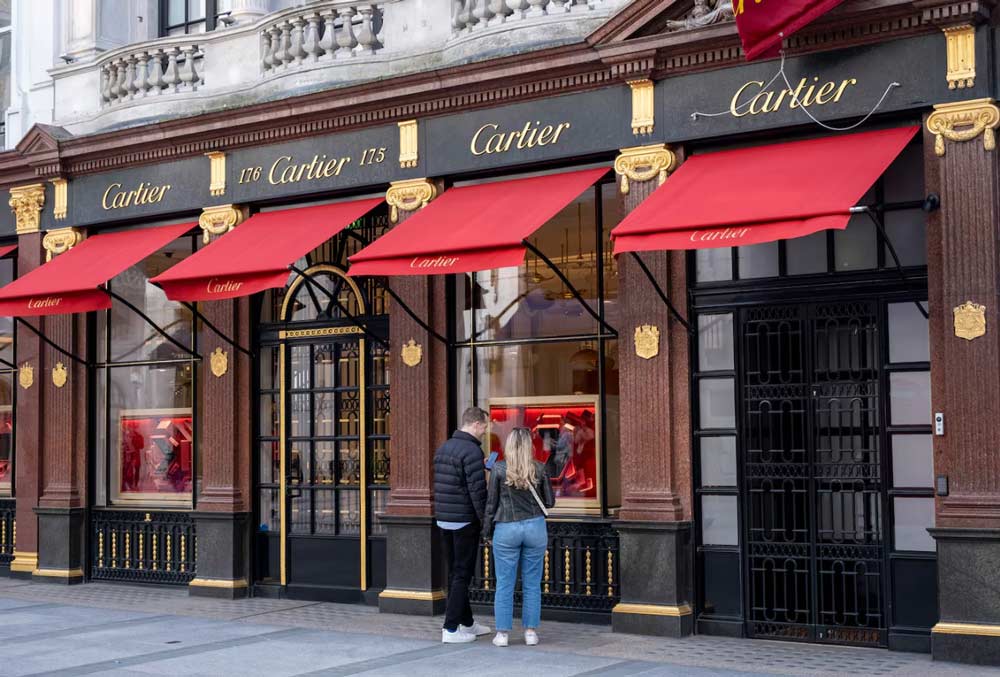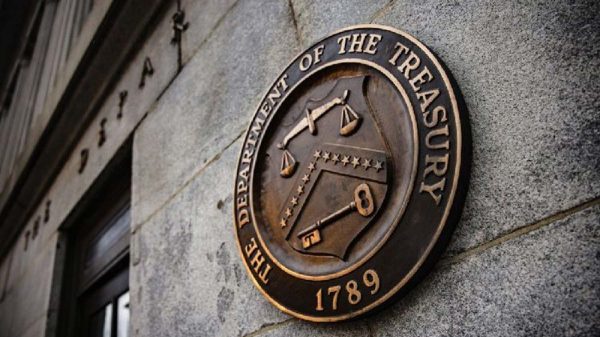Richemont, the parent company of luxury powerhouse Cartier, has reported a staggering 10% rise in fiscal third-quarter sales, reaching an all-time high of €6.2 billion ($6.38 billion). However, challenges in China continue to weigh on the company’s overall performance.
The Swiss luxury group announced its results for the three months ending in December, surpassing analyst expectations and marking a significant rebound in the global luxury sector. Analysts had projected a modest 1% growth, but Richemont’s performance far exceeded those estimates, sending its stock soaring by 17.15% on Thursday morning.
Strong European and U.S. Growth Buoys Richemont
The impressive sales growth was fueled by robust consumer demand in Europe and the Americas, which saw double-digit growth. In these regions, domestic demand and increased tourist spending during the holiday shopping season played a key role in boosting sales.
Luca Solca, a senior analyst for global luxury goods at Bernstein, noted that Europe and other parts of the Asia-Pacific region (excluding greater China) showed “strong sequential improvements,” reflecting both local demand and a resurgence in tourism.
China’s Struggles Drag on Overall Performance
While Richemont’s global performance was strong, its sales in Asia-Pacific fell by 7%, driven by an 18% decline in the combined regions of mainland China, Hong Kong, and Macau. China, historically a major driver of luxury demand, has faced economic challenges following its emergence from the COVID-19 pandemic. A sluggish macroeconomic recovery in the region has significantly affected consumer spending on luxury goods.
This decline in Chinese demand has been a persistent challenge for Richemont and the wider luxury sector, which has relied heavily on the region’s appetite for high-end products.
Richemont’s Shares Surge Despite Volatility
Following the announcement of its record-breaking sales, Richemont’s shares rose sharply, bringing its year-to-date gains to 28.75%. The company has experienced a volatile year, marked by changes in leadership and fluctuations in the global luxury market. In May, Nicolas Bos, the former head of Van Cleef & Arpels, was appointed as Richemont’s CEO, a move that initially boosted investor confidence.
The company’s Q3 performance marks a return to growth after reporting a 1% year-on-year dip in sales during the first half of the fiscal year, citing tough conditions in China and a challenging global economic backdrop.
Luxury Sector Shows Signs of Recovery
Richemont’s strong December quarter results are seen as a positive indicator for the luxury sector, which has faced headwinds over the past 18 months. Citi analysts stated that Richemont’s Q3 performance would likely support not only its own stock but also other luxury brands that have struggled to regain favor with investors.
Other luxury giants, such as Christian Dior, LVMH, and Hermès, also experienced share price increases following Richemont’s announcement. Analysts believe these results may signal the beginning of a broader recovery for the sector.
Outlook for the Future
Despite ongoing challenges in China, Richemont’s record-breaking quarterly sales underscore the resilience of the global luxury market. The company’s ability to capitalize on demand in Europe and the Americas has positioned it well for continued growth.
As Luca Solca noted, the results provide “an encouraging sign” for the luxury sector’s recovery, suggesting that the challenges of the past few quarters may have reached their peak in Q3 2024.
With a strong finish to 2024, Richemont and the wider luxury industry appear poised to navigate the uncertainties of global markets in the coming year. However, the recovery of Chinese demand remains a crucial factor for sustained long-term growth.











